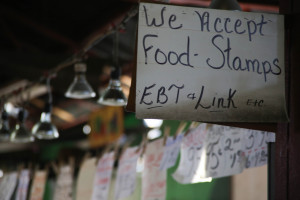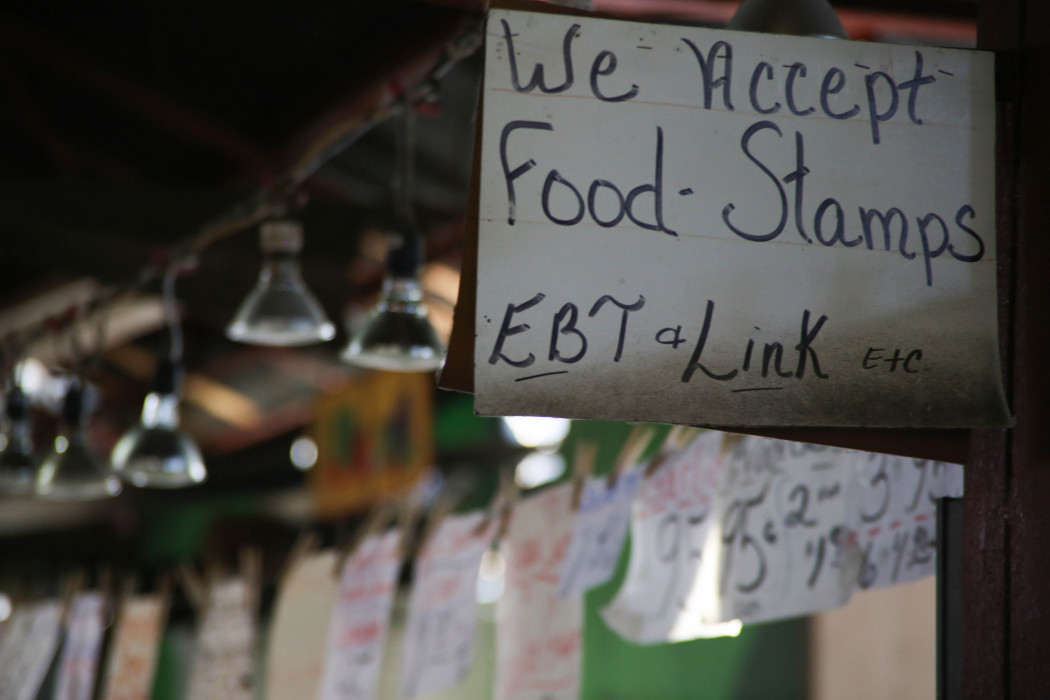>> Right now Governor McCrory has the ability to determine if more than 100,000 North Carolina residents’ bellies go empty. A bill passed by the NC General Assembly during its recent budget session would eliminate some food stamp benefits many in the state’s rural counties. It’s now on the Governor’s desk, and he alone holds the power to veto.
Right now Governor McCrory has the ability to determine if more than 100,000 North Carolina residents’ bellies go empty. A bill passed by the NC General Assembly during its recent budget session would eliminate some food stamp benefits many in the state’s rural counties. It’s now on the Governor’s desk, and he alone holds the power to veto.
The federal government funds food stamps for North Carolinians, but the state oversees the program. Currently federal law allows people who live in high-unemployment areas to apply for waivers to receive benefits longer than the allowed three months in a three year period.
>>The proposed change would end these waivers, potentially cutting off access to food stamps for thousands of the state’s neediest residents. On average, this benefit pays $30 a week. It might not seem like much, but for many it’s the difference between life or death.
If the governor signs the bill, starting as early as January 2016, food stamp recipients would have to work at least 20 hours a week to continue to receive benefits. Some legislators claimed this would be an incentive for the state’s poor to get back to work.
Like many bills recently passed — both in our state and nationwide — this bill is a solution in search of a problem. The idea of scores of lazy unemployed workers getting fat off the government teat is a falsehood. North Carolina’s rural counties have unemployment rates as high as 12% — twice the national average — and lack the government programs needed to incentivize employers to hire more workers.
People want to work. No one is going to pass up even a low-wage job in favor of receiving a measly 30 bucks a week. In many places, the jobs just aren’t there. >>Even Walmart receives more than three dozen applications for every cashier or warehouse worker it hires.
What’s most frustrating is that once again, North Carolina is >>turning down federal dollars in favor of misguided ideology. Similar to our refusal to take billions of dollars in free money >>to expand our Medicaid program , ending the waiver program punishes state residents without adding money to our coiffers. This isn’t about saving money or improving programs. It’s simply about punishing the poor. Again.
North Carolina women are among those most affected by this measure. We head more low-income households and rely heavily on benefits such as food stamps to feed ourselves and our families. That’s why we must be the ones to speak up.
>>Contact Governor McCrory’s office and tell him that cutting food stamp benefits for those in need is not a partisan issue, nor is it an effective way to stimulate our economy. Tell your friends about this change and share why you think taking care of state workers — even those temporarily without jobs — is a priority for you.

There are no comments
Add yours